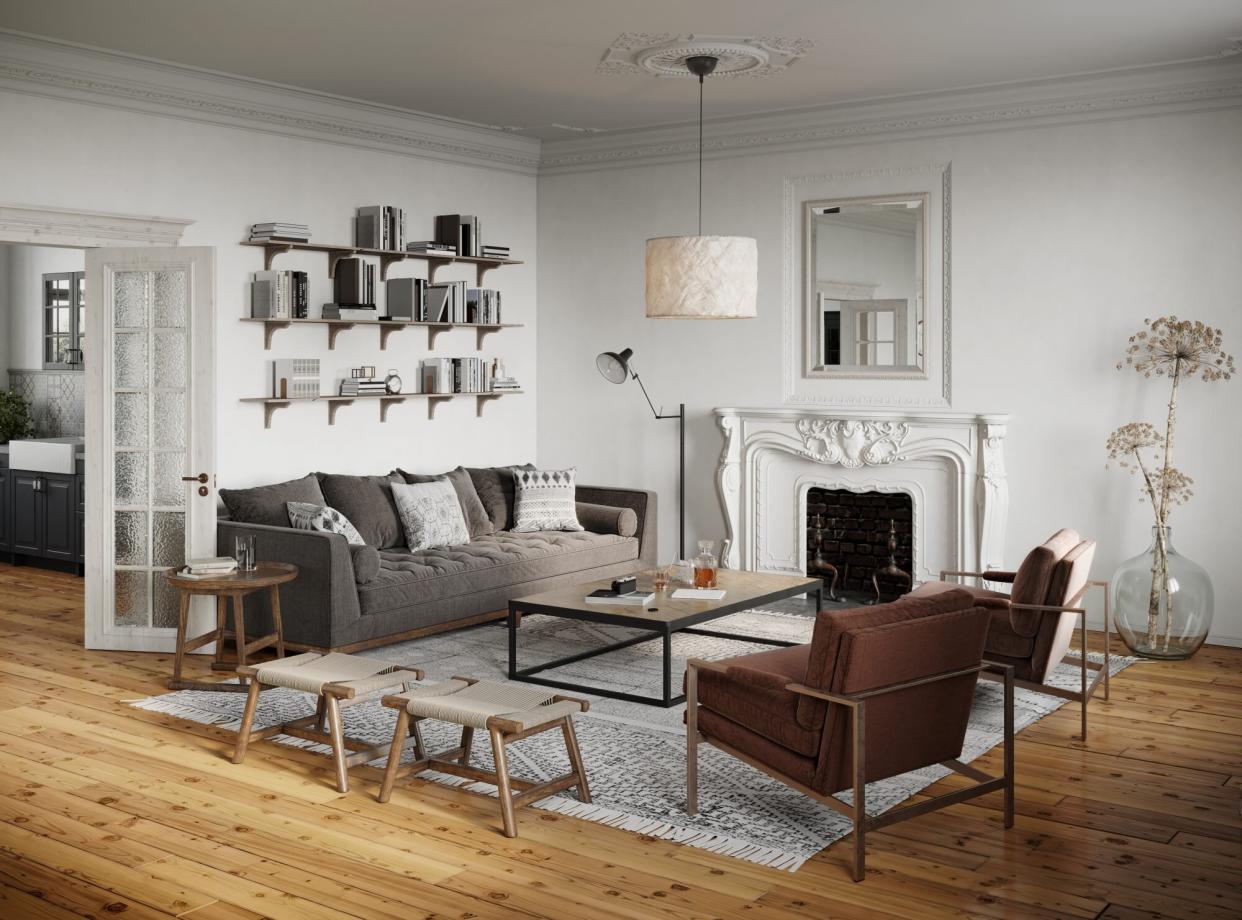How to Choose the Right Rug Size for Your Living Room, According to Interior Designers

alvarez/ Getty Images
TABLE OF CONTENTS
On This Page
Rug Sizes
Wall Space
Furniture Leg Placement
Keep It Center
Opt for a Larger Size
Multiple Rugs
A good area rug should be more than just decorative—it should also help create a focal point in your living room. In fact, placing a rug in just the right spot can make all the difference in your space's overall look and feel. "A rug is often the statement piece that ties all the other elements of the room together," says interior designer Kimberlee Gorsline of Kimberlee Marie Interiors. "It helps furniture arrangements feel grounded while offering visual and tactile texture."
Getting the most out of your area rug all comes down to choosing the right size for your living room, which will ultimately be determined by how big your space is and where on the rug you want your furniture to sit.
Related: How to Layer Your Rugs Like a Pro
Standard Rug Sizes for Living Rooms
While dimensions vary widely based on the type of loom used and what part of the world a rug is woven in, Keith Miller of Miller Interior Design says there are a few predominate standardized rug sizes available to choose from.
5 feet x 7 feet
7 feet x 9 feet
8 feet x 9 feet
8 feet x 10 feet
9 feet x 12 feet
12 feet x 18 feet
Interior designer Liz MacPhail says to try and make one of these sized work in your space (rather than opting for a customized iteration), as those will be the most readily available. "Don't be afraid to grab your blue painters tape and tape out the corners of standard rug sizes in your room to test what will work best," she says.
For living rooms, you'll likely want to stick to larger constructions. "Most commonly it will be a 9 feet x 12 feet or 8 feet x 10 feet, unless you have a particularly small or large room or have an oddly shaped room that calls for more than one rug," MacPhail says.
Keep Your Rug Away From the Wall
Don't opt for a rug size that's so large it's flush against your walls. "Unless you're trying to hide an unsightly floor situation, you'll want to leave some room between the end of the rug and the walls," says MacPhail. "Often, we put rugs on hardwood floors or tile that we like—we just want to delineate the space, add warmth and comfort, and provide sound dampening."
She recommends keeping about 6 inches of space between the wall and your rug—any closer than 4 to 5 inches starts to look a little cramped.
Furniture Legs Should Sit on the Rug
When selecting the right rug size, Billy Ceglia of Billy Ceglia Designs says says the rug should be large enough for all of the furnishings in the area to have their front legs on the carpet. As a general rule, MacPhail says to allow for at least 3 inches of rug behind the front legs of your furniture.
MacPhail says to choose a rug large enough that you avoid squeezing all your furniture close together when accounting for those 3 inches. "You need at least 12 inches between the sofa and the coffee table and chairs on another side for ample space to navigate," she says.
Related: The 8 Best Vintage-Style Rugs to Bring a Classic, Old-World Feel to Every Part of Your Home
Center the Rug Under Your Couch
While there's no right or wrong way to place a rug in your living room, Gorsline says centering your couch on it is usually a safe bet. "As the anchor of the room, if the rug is off-center it tends to make everything else look a little off, too," she explains.
However, depending on the size of the room and the style of sofa, Gorsline says a couch doesn't always have to be perfectly centered on the rug. "In the example of a large sectional, the sectional should be more in line with the corner of the rug—leaving a little margin if you can—instead of centered," she says.
Always Opt for a Larger Size
You should always choose a rug size that's big enough to sit under your outermost furniture pieces, says Kerrie Kelly, creative director of Kerrie Kelly Design Lab. "You'll want the rug to serve as the grounding piece, so be sure not to go too small to avoid having it look like a postage stamp in the center of your space," she says.
Ceglia confirms this sentiment, noting that if you're torn between two different rug sizes, bigger is always better. "Too small of a rug is worse than no rug at all," he says. "A larger rug makes the space feel more pulled together, and allows for easier and more functional furniture placement."
Consider More Than One Rug
If you're lucky enough to have a large living room, Bruce Fox of Bruce Fox Design says you can use a variety of different size rugs to create distinct zones throughout the space. "Each seating arrangement can have its own rug or there can be a large central rug with smaller accent rugs employed around the room," he explains.

